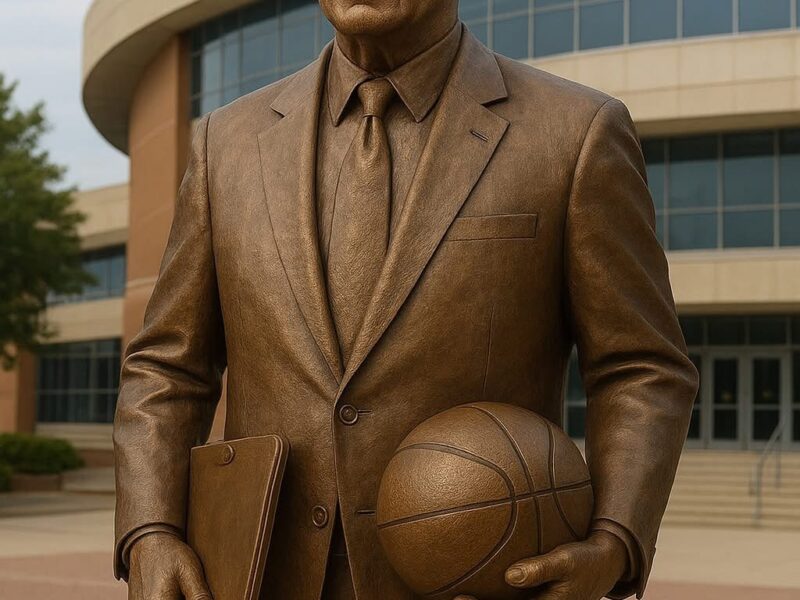Patrick Dumont, the owner of the Dallas Mavericks, made headlines recently with his bold statement about the team’s decision to trade Luka Dončić. According to Dumont, the move was a strategic decision aimed at positioning the Mavericks for long-term success rather than pursuing short-term gains. His comments came after a turbulent period for the Mavericks, who had reached the NBA Finals but failed to capitalize on their momentum, falling short in subsequent seasons. Dumont’s reasoning behind the trade was rooted in a belief that while the competition in both the Eastern and Western Conferences had significantly improved, the Mavericks had stagnated.
The Mavericks, led by Luka Dončić, had enjoyed a period of optimism after making it to the 2022 Western Conference Finals. That run to the Finals had raised expectations for the team, with many believing they were poised to take the next step and become legitimate contenders. However, despite the high hopes, the team struggled to build on that success. Injuries, inconsistent performances, and lackluster team chemistry hindered the Mavericks’ ability to sustain their momentum. The team made changes, but the results never fully aligned with the initial promise. For Dumont, the growing disparity between the Mavericks and the competition in both conferences became impossible to ignore.
From a strategic perspective, Dumont’s decision to trade Luka Dončić is understandable, though it has been met with considerable backlash from fans and pundits alike. Dončić is undoubtedly one of the brightest stars in the NBA, with a combination of talent, vision, and work ethic that is rare in today’s league. His ability to take over games, create plays, and put up staggering statistics has made him a fan favorite in Dallas and around the world. Trading away a player of his caliber seems counterintuitive, especially when considering his youth and the potential for long-term success.
However, Dumont’s rationale appears to be rooted in a deeper understanding of the NBA’s evolving landscape. After the Mavericks’ Finals appearance, teams in both the East and West had made moves to strengthen their rosters. Teams like the Phoenix Suns, Los Angeles Lakers, and Golden State Warriors all improved through trades, signings, and internal development. Meanwhile, the Mavericks were left trying to patch together a roster that could compete with the newly-empowered powerhouses in the league.
The competitive landscape has changed significantly over the last few seasons, with an influx of talent shifting the balance of power. Dumont’s focus on long-term development signals a recognition that the Mavericks needed to make a tough decision in order to avoid becoming a middle-of-the-pack team with no clear path forward. In his view, the lack of progress and stagnation were more concerning than the short-term pain of trading away a superstar player like Dončić.
Moreover, Dumont may be banking on building a more complete team around a new star or a different core group of players. The trade could be seen as an effort to reshape the Mavericks into a more versatile and balanced team, one that is capable of sustaining success over the long run rather than relying on one player to carry the load. This type of strategic move is often necessary when a team realizes that the current roster structure isn’t enough to compete with the top contenders, especially in an era where depth and versatility are becoming more important than ever.
Another factor that may have influenced Dumont’s decision is the financial realities of the NBA. Dončić’s contract is set to escalate in the coming seasons, and the Mavericks would need to build a team capable of supporting him in his prime. A superstar’s salary can sometimes limit a team’s flexibility in constructing a competitive roster, especially if the supporting cast isn’t capable of contributing at a high level. By moving Dončić, the Mavericks could have freed up cap space and additional assets to pursue multiple avenues for improvement, including acquiring several high-impact players who can complement each other in a way that Dončić alone could not.
Of course, there are risks involved in such a bold move. The Mavericks are essentially starting over, and any transition period may be difficult for the franchise and its fan base. Trading away a generational talent like Dončić means taking a huge gamble on the future. While Dumont’s long-term vision might ultimately pay off, there is also the possibility that the team will struggle to find a new star or the right formula for success. The pressure is now squarely on the Mavericks’ front office to make the right decisions in the coming years to avoid falling into mediocrity.
In the end, Patrick Dumont’s decision to trade Luka Dončić was a calculated risk, born out of a desire to build a sustainable future for the Mavericks. While it may appear as a short-term loss, Dumont’s long-term outlook may prove to be the right approach in a rapidly changing NBA. The real test will come in the years to follow—whether the Mavericks can develop into a perennial contender again, or whether they will regret parting ways with a player of Dončić’s caliber. The road ahead is uncertain, but Dumont’s focus on long-term growth suggests a belief that the current path wasn’t viable for continued success.


